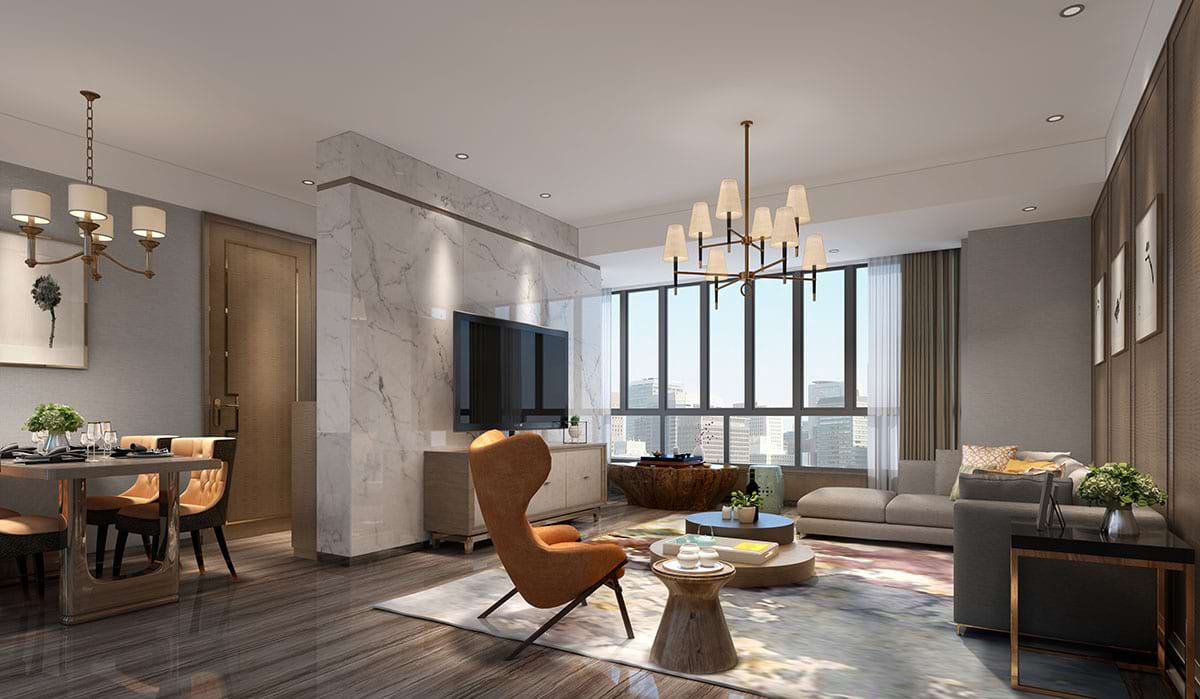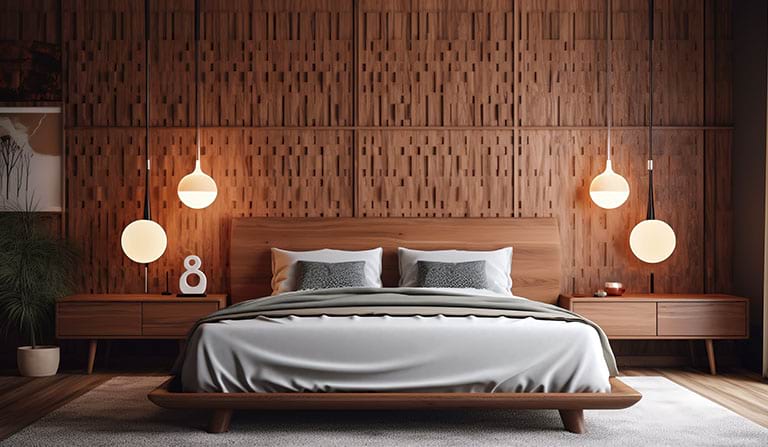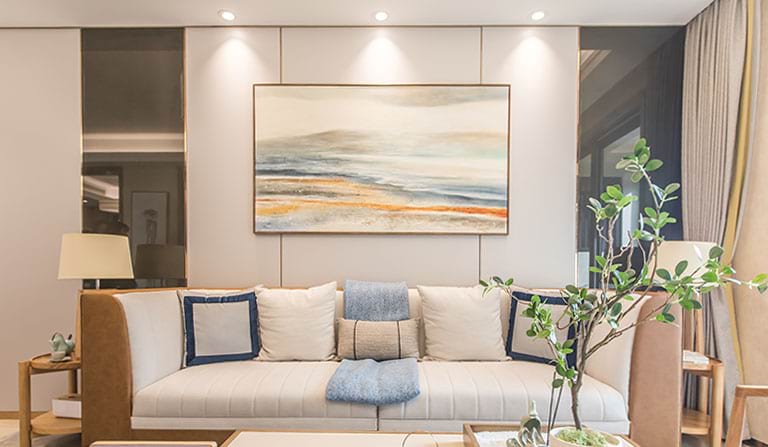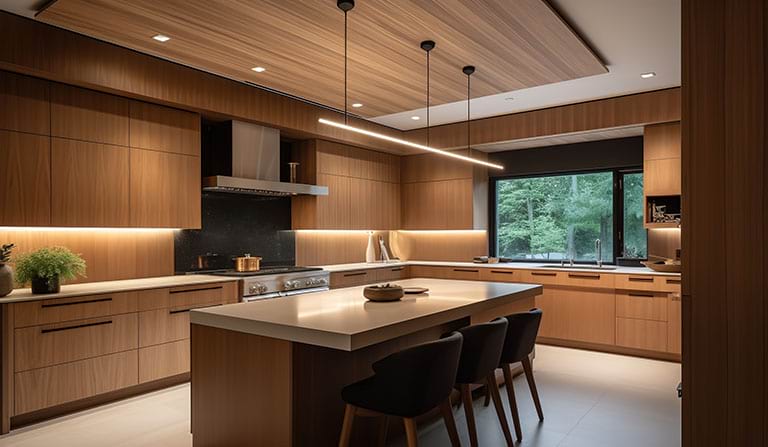The Significance of Lighting as the Essential Design Element

Each element of design significantly contributes to the overall appearance and ambiance of an area, yet they are not all equivalent in importance. Among these elements, lighting design holds the greatest significance. The reason is that our physical well-being, emotional health, and psychological condition are all reliant on proper lighting. Moreover, lighting influences the environments it encompasses.
In today’s discussion, we will delve deeper into several aspects of lighting. These include its definition and function, the influence it has on us, its significance in design, and factors to keep in mind when selecting the appropriate lighting.
What is lighting and its purpose?
Lighting encompasses the organization of light sources, generally for a predetermined objective. This objective can differ significantly, though it often entails providing brightness via artificial methods. Nevertheless, lighting design may incorporate both artificial lighting elements and the strategic positioning of windows to utilize natural sunlight effectively.
Proper illumination can significantly enhance a space and positively impact its inhabitants. Various lighting styles can elicit diverse responses from individuals. Warm tones encourage a sense of calm, whereas cool lighting boosts efficiency and attentiveness.
Why is lighting important for our well-being?
In terms of our overall health, the significance of light should not be underestimated! I will focus on three key areas, offering examples to emphasize my argument. First, we will discuss physical health. Following that, we will explore emotions. Lastly, we will examine our mental condition.
Kindly be aware that while we have enumerated numerous impacts, this is by no means a comprehensive list and ongoing research continues to explore the influence of lighting on our overall health and wellness.
Physical Health
Several recognized forms exist for how lighting influences physical well-being, but I will mention only four.
Initially, proper illumination is crucial for avoiding harm in both domestic and professional settings. One can recall the experience of accidentally stepping on a Lego piece in the dark while attempting to access the light switch. This is merely a single instance. More severe incidents can undoubtedly occur, particularly in work environments, if the lighting is insufficient.
Additionally, illumination influences the body’s internal clock, consequently affecting sleep, and ultimately impacting emotions and the immune system. Although you may have experienced a change in your mood due to insufficient quality rest, you might not have realized that individuals with disrupted circadian rhythms have a higher susceptibility to illnesses.
Thirdly, when exposed to the proper level of illumination, our eyes experience reduced fatigue. Consequently, this can diminish both the occurrence and severity of headaches. Moreover, it lessens the exhaustion we may feel as a result of our eyes’ inclination to shut.
Fourth, certain research indicates that illumination can influence dietary patterns. It has been observed that well-lit environments are associated with healthier and quicker consumption, while low-light settings tend to be linked to less healthy eating habits, albeit at a slower pace and with greater enjoyment.
Emotions
Did you ever observe yourself becoming annoyed when someone switches off the “superfluous” or “additional” light as you’re working? How about your emotional state shifting upon entering another person’s home, where you experience a feeling of serenity and tranquility wash over you?
Lighting has a significant impact on emotions and disposition. As our environment shifts, our mood is likely to be influenced, ideally towards a more positive state, although it could also sway negatively. Numerous individuals have noted that enhanced lighting conditions can alleviate feelings of sorrow, profound depression, anxiety, and general stress.
Mental State
Proper illumination aids in reducing drowsiness during the day, enhancing concentration, and maximizing cognitive functioning. The most effective source of light is undoubtedly natural sunlight; however, utilizing bright white LED lighting indoors serves as an excellent alternative.
Lighting plays a crucial role in setting the stage for forthcoming actions. Lowering the light intensity primes our minds for romantic encounters, while illuminating the space more brightly prepares our bodies for enhanced involvement, dedication, and vigor.
Why is lighting important for design purposes?
How simple is the process of altering wall hues or modifying furnishings? The task of repainting walls demands a significant amount of time (if undertaken independently) or financial investment (if outsourced to a professional). Replacing furniture is neither economical nor efficient in terms of space utilization, as it involves addressing the disposal or storage of old items (where to store them? Or sell them at a reduced price compared to the original cost?) and accommodating the new, often more expensive, pieces.
Conversely, lighting can frequently be altered simply by switching out the bulbs. In certain instances, it is possible to select the intensity and hue—especially when opting for the increasingly sought-after Smart bulbs.
Furthermore, well-lit spaces give an impression of spaciousness. While this is just a visual trick, individuals will still perceive and value it. Lighting generates experiences. In certain locations, intense illumination enhances the experience, whereas softer lighting might offer a more suitable atmosphere elsewhere. Without appropriate lighting, issues may arise. Consider the hazardous areas in cities with insufficient lighting, compared to the city centers, where crime rates are generally much lower.
Things to Consider When Choosing Lighting
Having covered the impact of illumination, we will now delve into the crucial aspects to consider when selecting various lighting design alternatives.
Initially, it is crucial to take into account the room’s intended use. For spaces designated for tasks like offices, kitchens, and studies, it is important to select lighting that encourages attentiveness and efficiency, typically characterized by brighter and cooler tones. Conversely, in areas such as entertainment rooms, living rooms, and bedrooms, where the main purpose is not work-related, opt for warmer lights that facilitate a sense of calm and relaxation.
Keep in mind that certain rooms serve multiple functions (like bedrooms incorporating a workspace), so it’s important to combine both bright, cool lights and warm, subdued lighting choices. This leads us to another factor: adaptable lighting and intelligent lighting systems. Smart lights are particularly well-liked since they allow you to schedule when lights switch on and off, modify the color and/or intensity of the illumination, use voice commands for each feature, and manage the lights from a distance.
A tertiary factor to consider involves optimizing the utilization of natural illumination and enhancing it with appropriate lighting selections. The ultimate aspect to examine is the appearance of the chosen style within your area.
The Bottom Line
Illumination plays a crucial role in every setting. Within residential spaces, it is essential to cultivate an atmosphere that promotes optimal physical, mental, and emotional well-being. In professional environments, the goal is to create a setting conducive to sustained productivity, security, and effortless task completion. Implementing the appropriate lighting can effectively support these objectives.
Numerous excellent lighting alternatives are available, offering a wide range of flexibility. However, this doesn’t simplify the decision-making process. Opting for a contemporary lighting option is almost always a safe bet. Minimalist lighting is another choice that functions well in nearly all settings. In the end, personal preference plays a significant role in the selection. With a deeper comprehension of lighting’s significance and the factors that contribute to superior lighting, you should be able to confidently make an informed decision with ease.



Leave a comment
You must be logged in to post a comment.